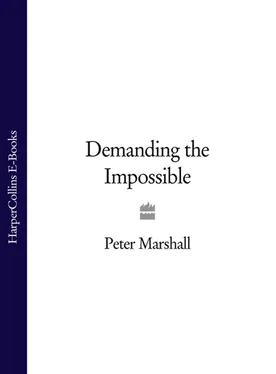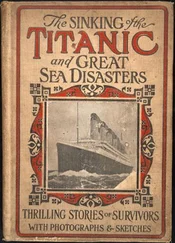It is easy to see why the authorities of Geneva should be disturbed. In his Utopia set in Australia, Foigny attacks all the foundations of religion. Although the inhabitants believe in God, they never mention him and spend their time in meditation rather than prayer. They are born free, reasonable and good and have as little need for religion as they do for government. They have no written laws and no rulers. Private property does not exist. Even sex amongst the ‘hermaphrodite’ Australians is no longer necessary and the family has no role. The imaginary traveller Jacques Sadeur, a hermaphrodite himself, never found out how they reproduced but reports:
I have only observed, that they loved one another with a cordial love, and that they never loved any one more than another. I can affirm I neither saw quarrel nor animosity amongst them. They know not how to distinguish between mine and thine and there is more perfect sincerity and disinterestment amongst them than exist between men and women in Europe. 12
Education takes place in communal houses like monasteries from the age of two to thirty-five. They spend the first part of each day at school or in scientific research, the second part gardening, and the third part in public exercise. Since they only eat fruit, they have no need for agriculture beyond gardening, and since they wear no clothes and have little furniture there is no need for industry. The society is entirely egalitarian. As an Old Man explains to Jacques Sadeur: ‘we make a profession of being all alike, our glory consists in being all alike, and to be dignified with the same care, and in the same manner.’ 13
But the most interesting thing about Foigny is that he is the first utopian to conceive of a society without government. The Old Man expounds what might be called a philosophy of anarchism:
It was the Nature of Man to be born, and live free, and that therefore he could not be subjected without being despoiled of his nature … The subjection of one man in another was a subjection of the human Nature, and making a man a sort of slave to himself, which slavery implied such a contradiction and violence as was impossible to conceive. He added that the essence of man consisting in liberty, it would not be taken away without destroying him … This does not signify that he does not often do what others desire, but he does not do so because others compel or command him. The word of commandment is odious to him, he does what his reason dictates him to do; his reason is his law, his rule, his unique guide. 14
These freedom-loving people have no central government and all the decisions about their lives are taken at the local assemblies of each district or neighbourhood. Each morning food is brought by the members of each district to the common storehouse when they meet for their morning conference. They are a peaceful people and never fight amongst each other, but they are ready to defend their country against foreign invasions. But even in war, they have no leaders or commanders and they take up positions without previous discussions. The order and harmony prevailing in their society results primarily from the ‘Natural Light’ of their reason: ‘this adherence to strict reason, which unites them amongst themselves, carries them to what is good and just.’ 15
Foigny’s Australians, with their commitment to reason, universal benevolence and perfect sincerity, anticipate Swift’s Houyhnhnms in the fourth part of Gulliver’s Travels ; indeed, they are so close one wonders whether the Tory Dean was inspired by Jacques Sadeur’s imaginary voyage. There is even a comparison at the end of Foigny’s book between the virtue and reason of the Australians and our own Yahoo knowledge ‘by the assistance of which we only live like beasts’. 16 Godwin too, if had discovered the work, would have been impressed by the Australians’ practice of political justice in their society without government.
Another priest in France, though considerably more illustrious, used the device of the imaginary voyage to express his moral and political views. He was the Archbishop François de Salignac de La Mothe Fenelon (1651–1715). He wrote the didactic novel Télémaque (1699) for his pupil, the duc de Bourgogne, grandson of Louis XIV, and the future king. Ostensibly relating to the adventures of Telemachus, the son of Ulysses, it uses an imaginative narrative full of classical mythology as an excuse to discuss politics, morals, education and religion.
There are two Utopias embedded in the work, the first in the country of La Bétique, and the second in the city of Salente. In the idyllic country of La Bétique the sun always shines, and there is a natural abundance, but the citizens hold their goods in common and lead simple lives. It is puritanical compared to Rabelais’ Abbey of Thélème; the natives are against vain riches and deceitful pleasures. At the same time, they live in a state of libertarian and pacifist communism and do not want to extend their dominion. They show no signs of pride, haughtiness or bad faith.
In the city of Salente, Telemachus’s friend Mentor is asked to mend the administration. He does this by establishing a reign of frugal austerity: gold, foreign merchandise, even effeminate music, are banished. The puritanical tendency in Fénelon also comes to the fore and he argues that well-being is to be achieved by the restriction not the satisfaction of desires: ‘Deceptive riches had impoverished them, and they became effectively rich in proportion as they had the courage to do without them.’ 17
No wonder Louis XIV was not amused; Fénelon lost favour at court and was exiled to his diocese. But Télémaque proved the model of many a religious and political dissertation disguised as a novel written by the philosophes in the following century. In addition, it profoundly influenced the young Godwin who argued in his Enquiry concerning Political Justice (1793) that it is preferable to save a benevolent philosopher like Fénelon in a fire rather than his maid, even if she were one’s own mother, because of his superior ability to contribute to human happiness.
In the work of Foigny and Fénelon we can see the kind of audacious thinking which was to inspire the French Enlightenment of the eighteenth century. After Descartes had established his method of systematic doubt and rational enquiry, the philosophes went out of their way to challenge received ideas and prejudices and to analyse society in the light of reason. They took nature as their yardstick and reason as their guide.
Central to the world-view of the Enlightenment was a belief in the perfectibility of man. Man is not irretrievably fallen in a state of sin, the philosophes argued, but largely the product of his circumstances. If you change his circumstances, then you can change his conduct. And the best way to achieve that is through enlightenment and education. Man is therefore perfectible, or at least susceptible to continual improvement. History moreover shows that progress has taken place in the past, and there is no good reason to think that it should not so continue in the future.
But while all the philosophes believed in the progressive nature of man, they did not all reach anarchist conclusions. Voltaire introduced the liberal ideas of Locke into France in the eighteenth century and like him thought government necessary to protect life and property. He did not go beyond criticizing individual abuses and monarchical despotism. In public Diderot advocated with Voltaire a constitutional monarchy as long as the king made a social contract with the people, and only in private contemplated a society without government and law. While Rousseau was a product of the Enlightenment, he came to question the prevailing confidence in reason and science to bring about social and moral progress. People, he thought, are naturally good and have become depraved by existing institutions. But he did not call like later anarchists for the abolition of all such institutions but their replacement by a new social contract. Only less well-known thinkers like Jean Meslier and Morelly carried the philosophes ’ criticism of the existing regime to the borders of anarchism. Their works however were known only to a few and they did not exert much influence in their day.
Читать дальше












